Pearly Beach Conservancy AGM and Nature Walk ...
The Pearly Beach Conservancy AGM on 19 December was well attended.
These are the alien trees the Pearly Beach Conservancy hacks - Rooikrans, Port Jackson and Manatoka.
All are Australian species and have become invasive threats to Cape Fynbos.
Rooikrans (Acacia cyclops) is an evergreen tree with a wind clipped canopy. The leaves have rounded points and 3-5 veins. Flowers are bright yellow fluffy balls. Seedpods are brown, curved and twisted. The seeds are black, encircled by a red, fleshy stalk - resembling a red eye.
Deformed seedpods known as galls - are caused by the introduction of a certain midge to make the seeds infertile. This form of biocontrol is successful, but slow. Cutting trees down is also successful but must be followed up with annual inspection. The sun can now penetrate the soil and activate new Rooikrans seedlings.
Acacia cyclops is controlled under NEMBA, 2004 Category 1b. It may not be grown and must be removed.
Rooikrans is also a risk for burning very hot fires. If you have these in your garden, please cut it down, as described above.
Rooikrans’ recognizable canopy, 3 veined leaves and brown twisted seedpods.
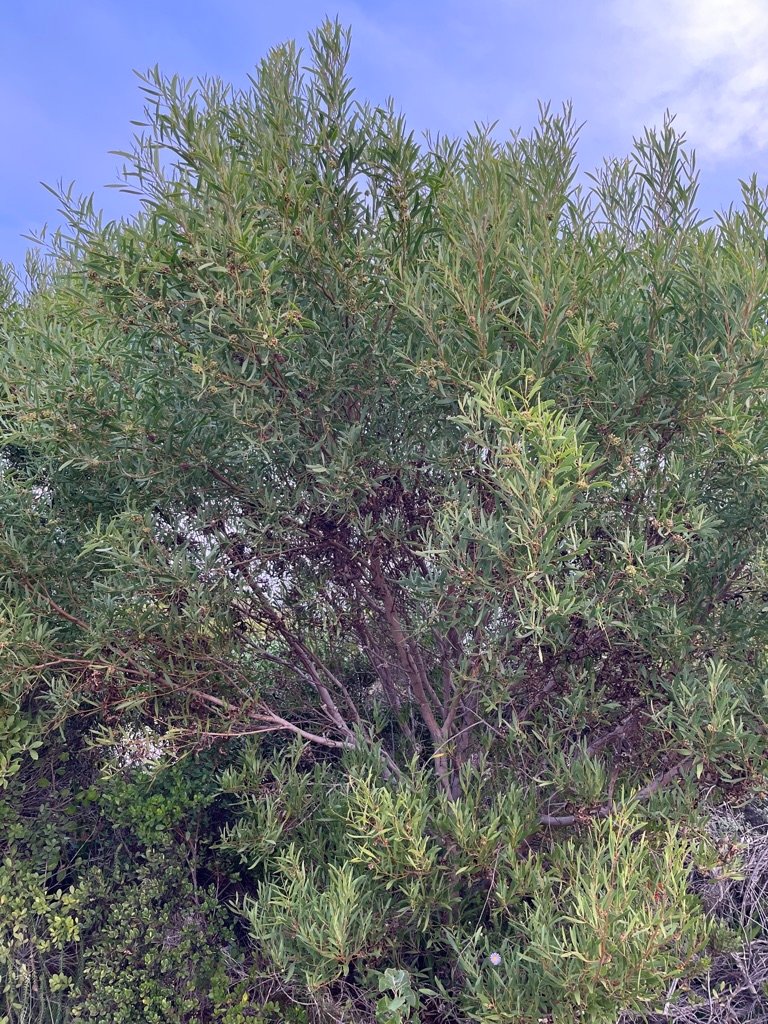
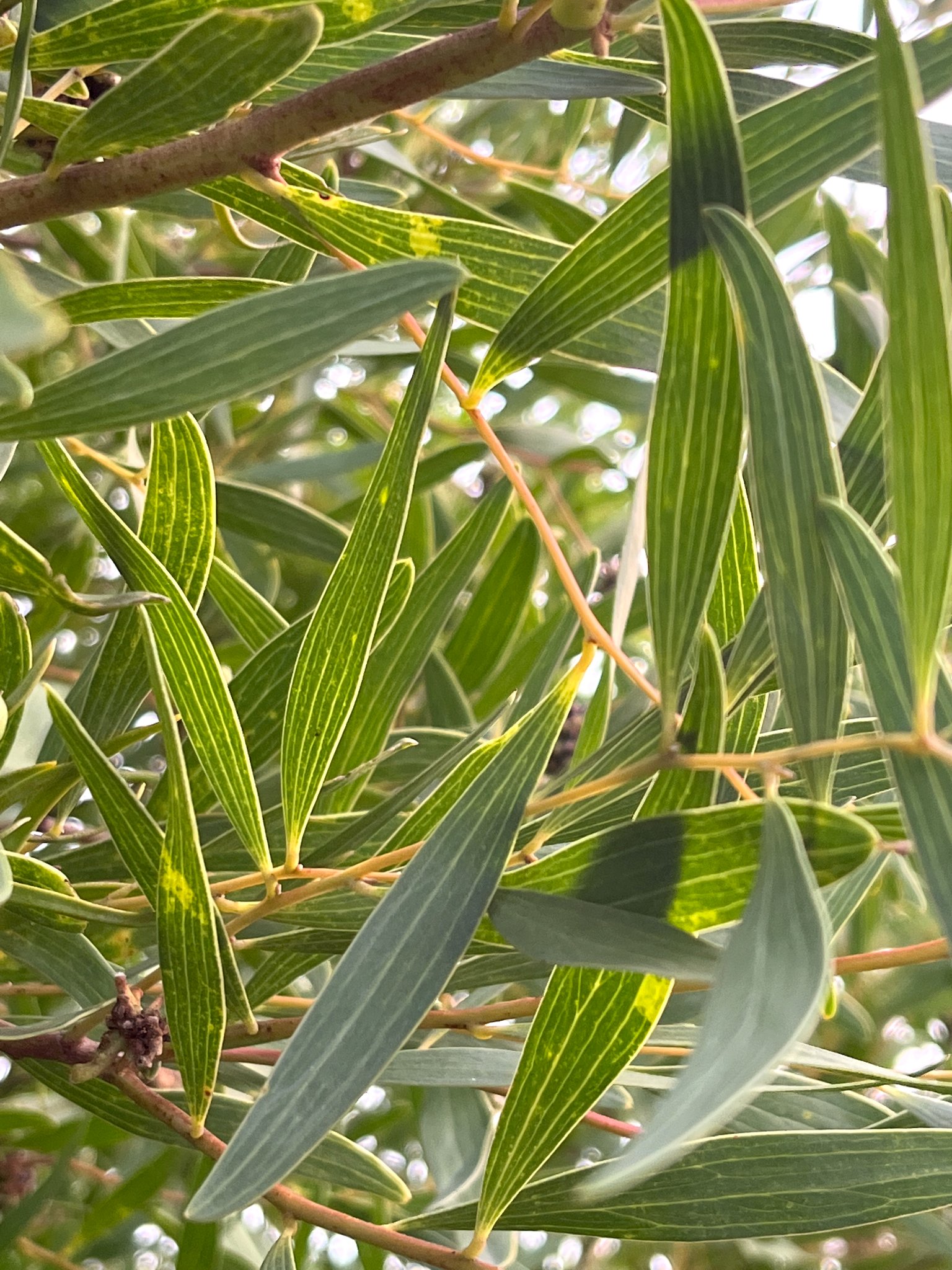
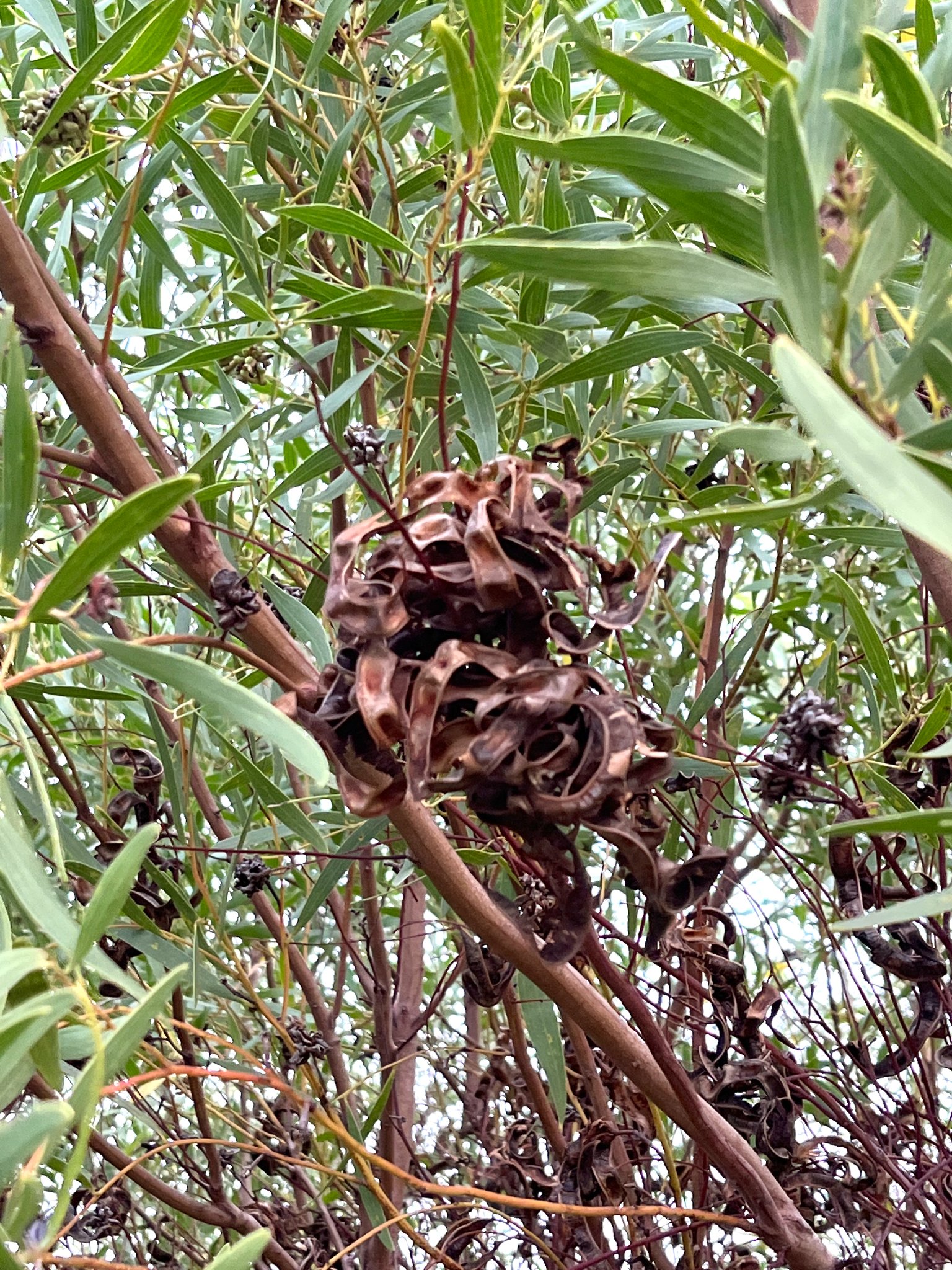
Rooikrans deformed seedpods due to biocontrol.
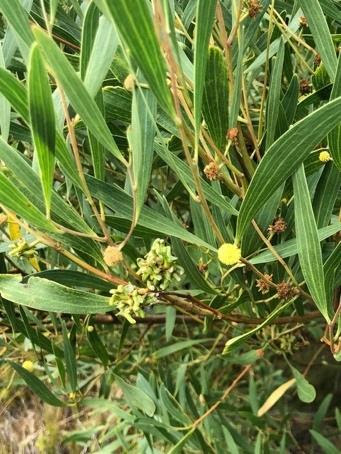
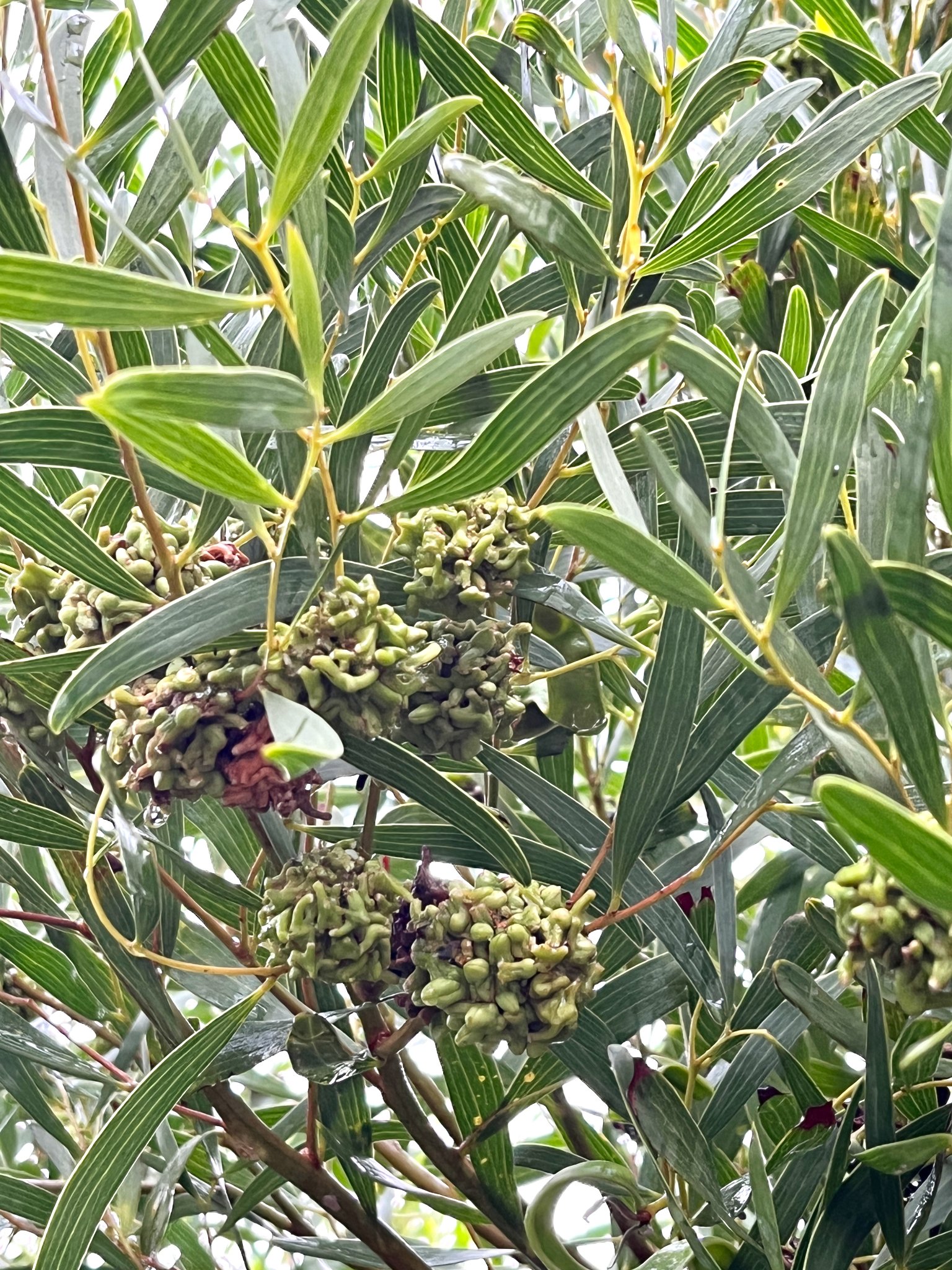
Port Jackson (Acacia saligna) is an evergreen tree with a sparse willow like appearance. Leaves are more or less drooping, long, straight or sickle shaped. Flowers form clusters of bright yellow fluffy ‘balls’ near the end of branches. The seedpods are brown and straight.
Acacia saligna is controlled under NEMBA, 2004 Category 1b. It may not be grown and must be removed.
If you have these in your garden, please cut it down, as described for Rooikrans. In addition, apply a chemical herbicide to the cut stumps to prevent new shoots.
Port Jackson recognizable canopy, leaves with mid vein.
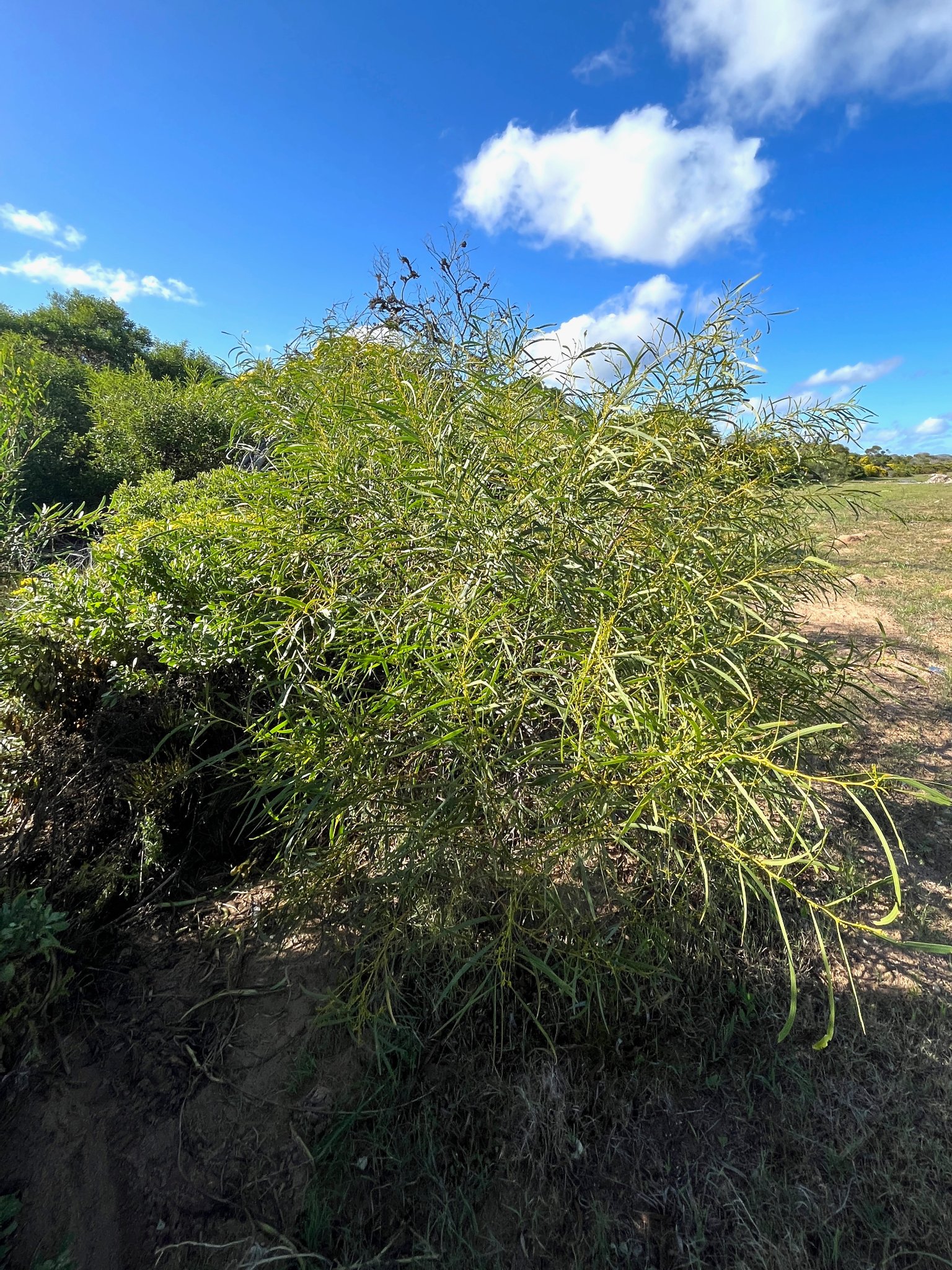
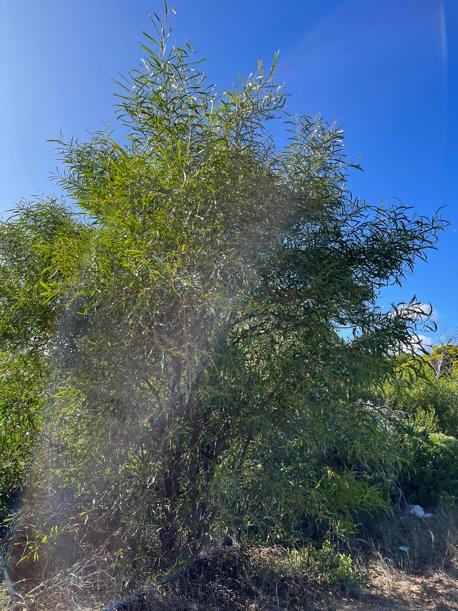
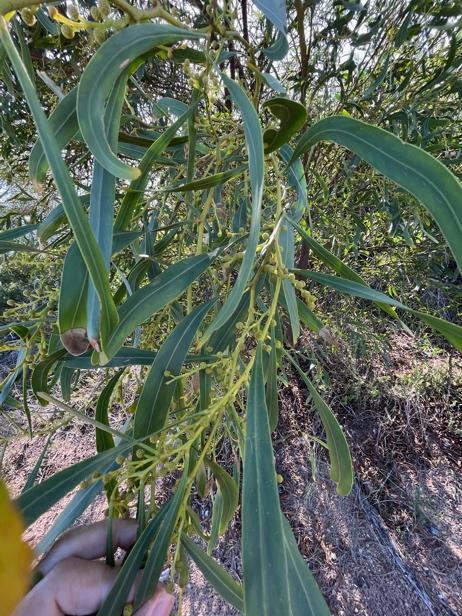
Manatoka (Myoporum monatum) is an evergreen tree. The leaves are soft and supple with pointed tips and a prominent mid vein. Flowers are small and white. It bears black round berries which birds like to eat. It is a vigorous resprouter which reproduces by way of root runners underground or it grows from seed. Cutting these down, the stumps must be treated with a chemical herbicide. Afterwards check for new sprouts and seedlings activated by the sun.
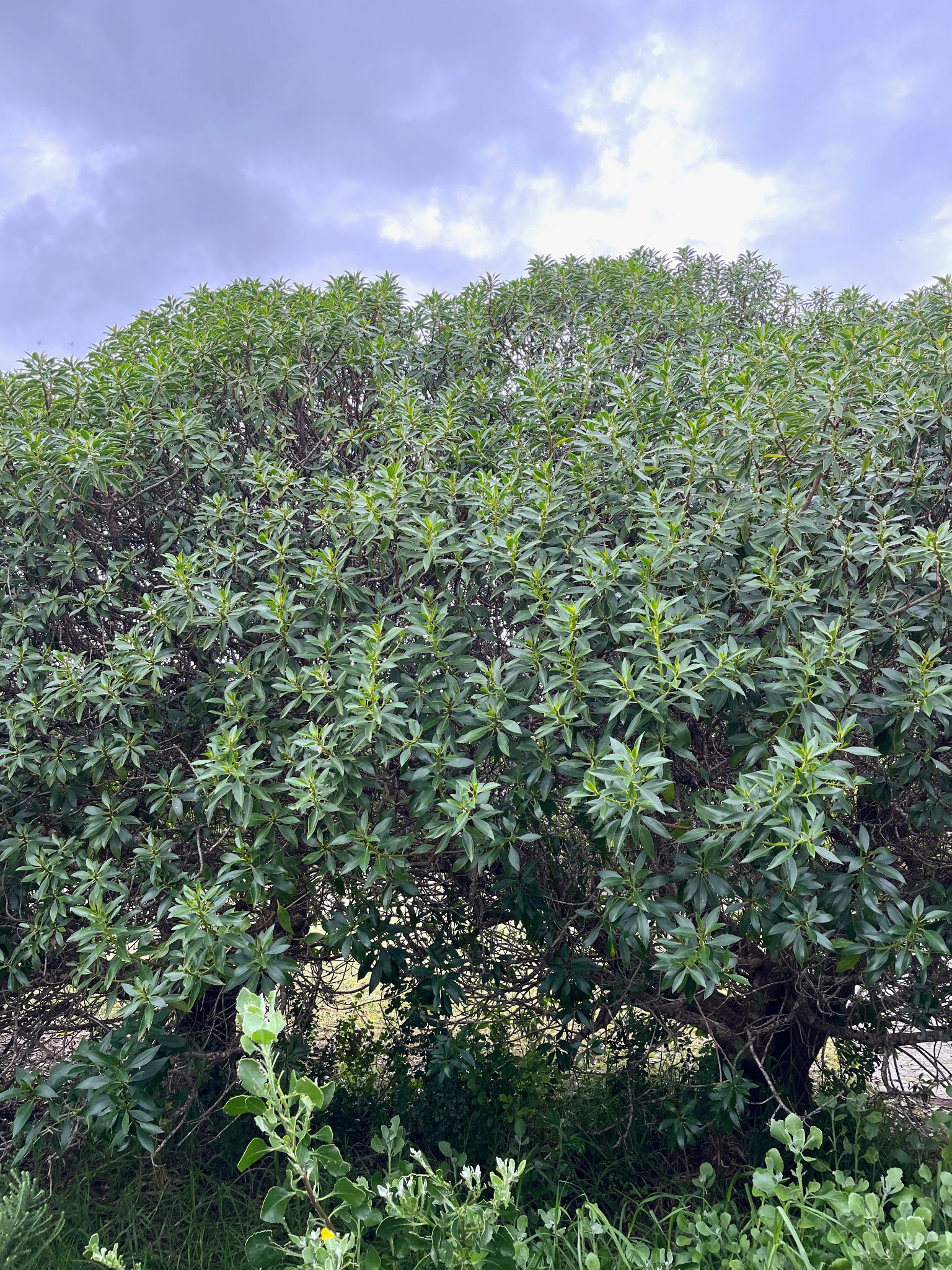
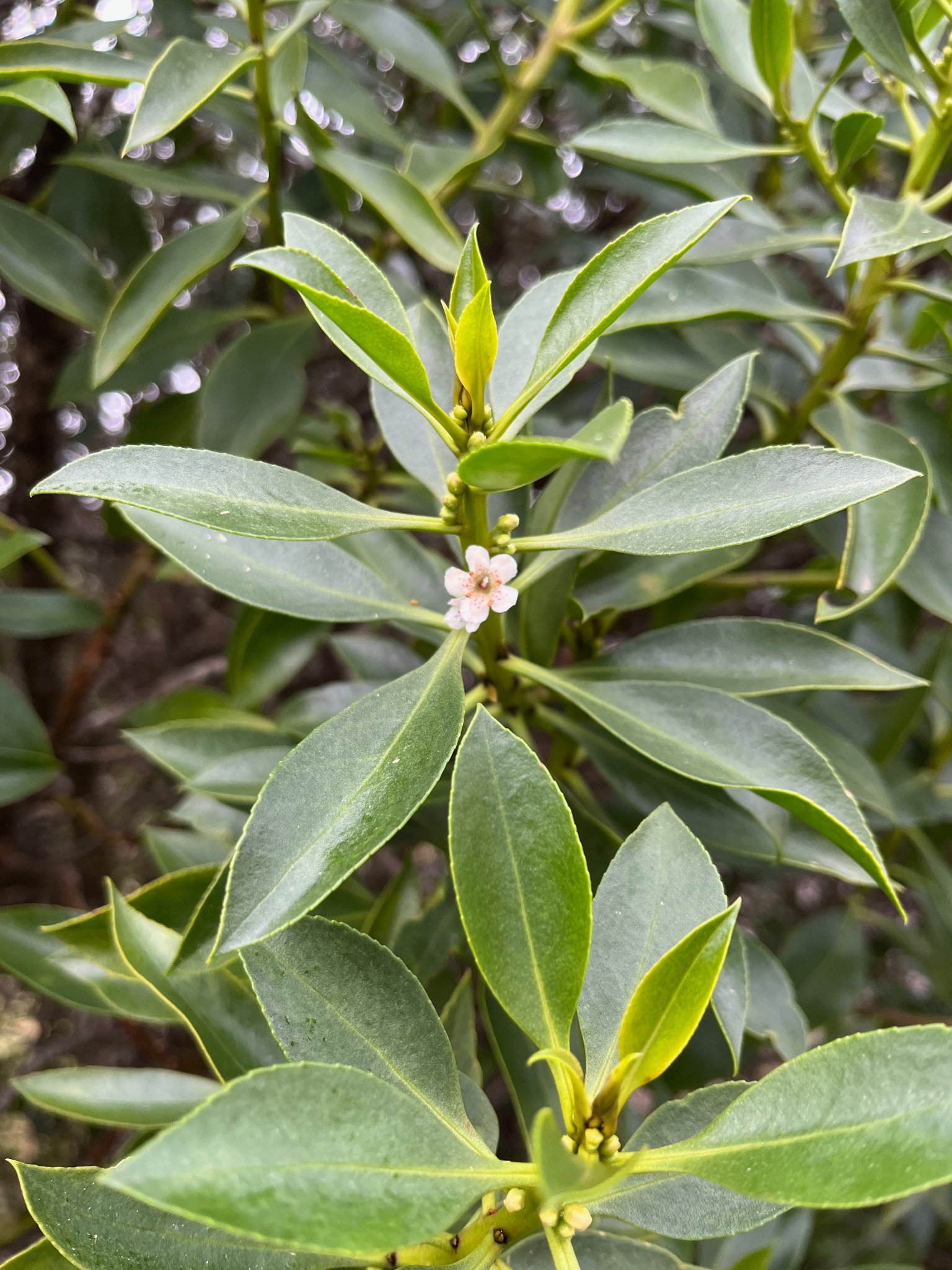
Myoporum monatum is controlled under NEMBA, 2004 Category 3. It may not be grown but may remain in your garden. You must however, prevent its spread beyond your own garden.
Should you have Manatoka in your garden, please start by implementing a plan over the next few years to purposefully phase them out as described above. Once Manatoka has invaded Fynbos, its shade kills Fynbos and leaves the soil bare and unattractive. It is also not possible to prevent its spread beyond your garden because birds like to eat the berries and the seeds resprout from their droppings far away from your garden.
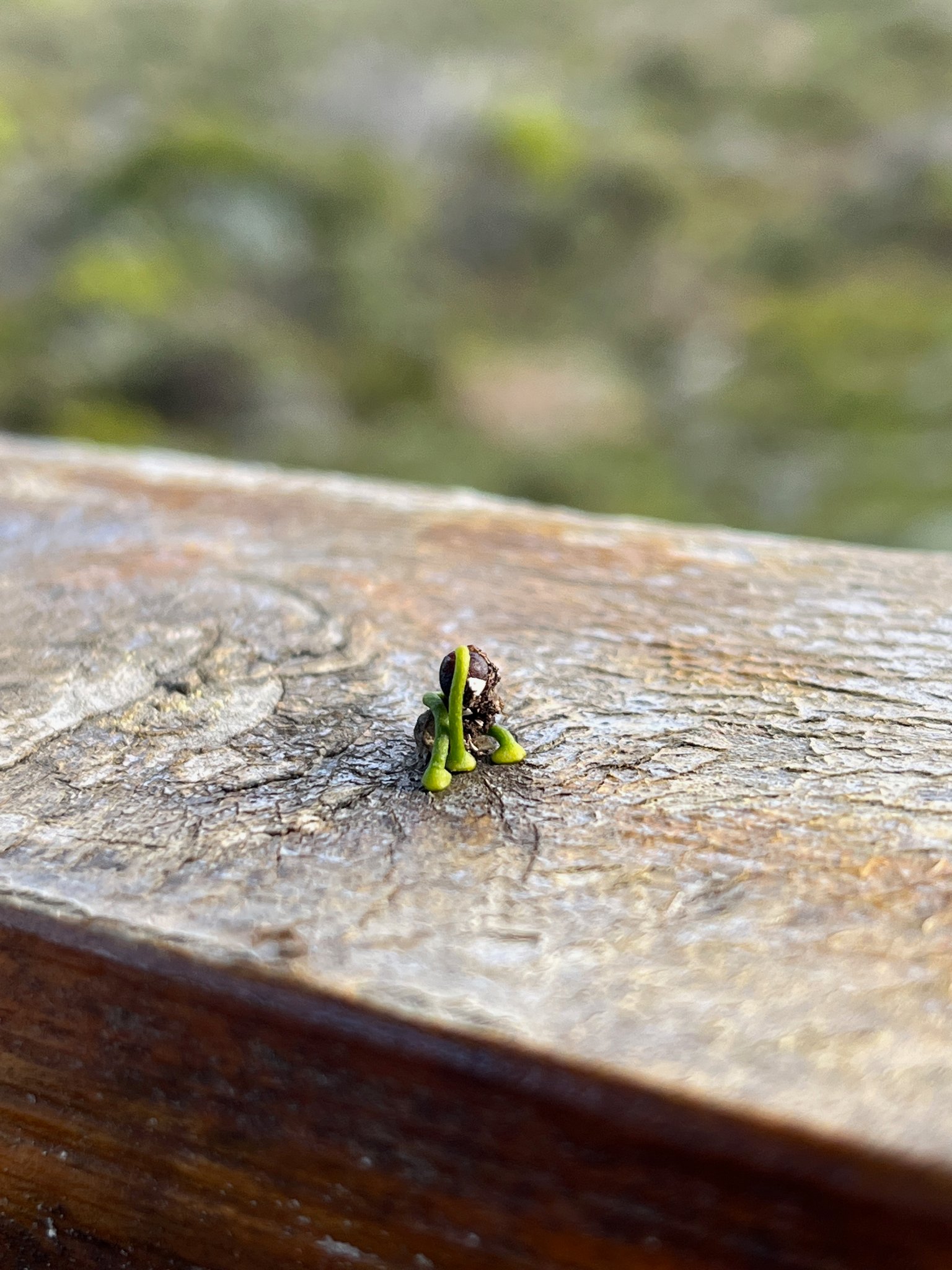
The Conservancy maintains the green zone and the 12 green spaces in the residential area of Pearly Beach to a pristine (no alien infestation) or near pristine (<10% alien infestation) level through regular hacks. Private land is however the responsibility of private landowners. We encourage you, for the safety and beauty of Pearly Beach, to join us and aim for pristine level in your own garden.
The Pearly Beach Conservancy is a non-profit organisation dedicated to protecting and restoring the natural habitat. In addition to its environmental efforts, Pearly Beach Conservancy aims to uplift the local community. Operated by volunteers, Pearly Beach Conservancy collaborates closely with the O...
View ProfileXplorio is your local connection allowing you to find anything and everything about a town.
Read MoreThe Pearly Beach Conservancy AGM on 19 December was well attended.
Saturday, 7 December 2024, was the perfect day for a market.
This year, we're excited to host Mike Dormer as our guest speaker, presenting a fascinating talk on The Geology of the Pearly Beach Area.
Help us protect our beautiful fynbos!
We’re also thrilled to announce that our Second-Hand Market will be held once again this year on 7 December 2024 at the Village Green.
Pearly Beach is part of the Cape Floristic Region, the smallest but richest floral kingdom in the world.
